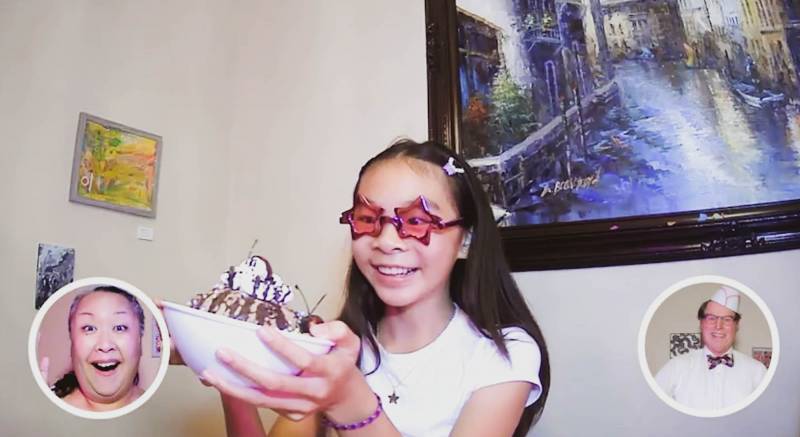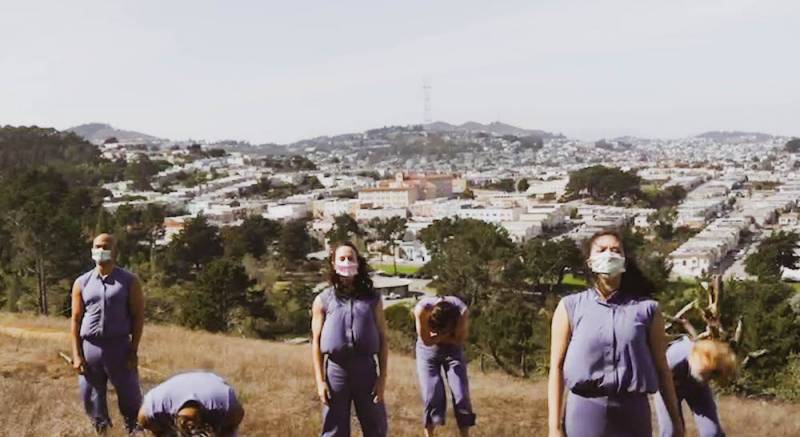What makes a “utopia?” Is it a place where we can be free to be ourselves, or a place where we can become our better versions? And what is better? Is the purpose of utopia to give us something to build towards, or is it something to dream into existence? At a time when both building and dreaming feel essential, there may be no better moment than to ponder the attainability of a utopian ideal.
Joining a veritable pantheon of utopia-themed entertainment currently streaming, Charles Mee’s newest play, Utopia, opened Oct. 16. Commissioned and presented online by Cutting Ball Theater, and directed by Ariel Craft, Utopia gives audiences a window into a world much like our own but just a bit extra.
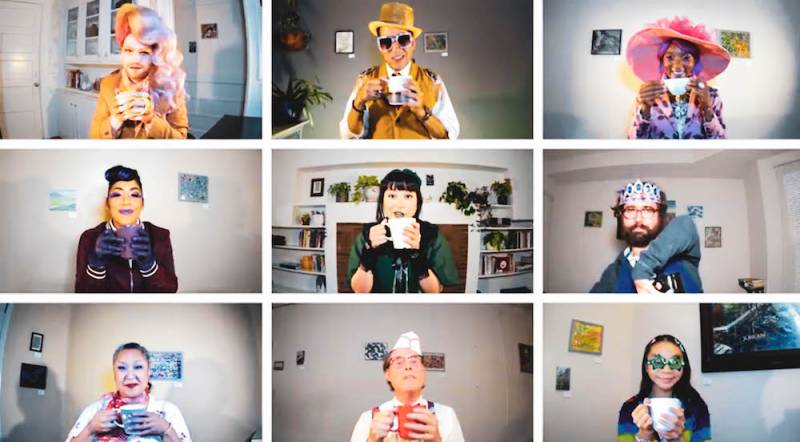
To sit with the world of Utopia—as with Mee’s other work—is to sit with the idea of expansiveness. A spiraling outward that connects small dots of intimacy, pushing them ever further. A world that begs the viewer to consider love, joy and emotional fulfillment as theatrical topics as “big” and “important” as ones of anger, fear and disillusionment. A world where control is never the point, only iteration.
Within Utopia, Mee borrows and remixes from his own past works—including Our Times, Tunnel of Love and Wintertime—creating a resonance that spans years and distance and disciplines. In some ways it’s reminiscent of his 2019 collaboration with Anne Bogart and Elizabeth Streb, Falling and Loving, itself a remix of past work. This continuous revisiting and revising of the same text and tropes feels familiar and necessary, both as an artistic process and a life practice. What Utopia seems to suggest is that the work is never really done. The conversation is never really over. The ideal—whatever that might mean—is never fully attained.
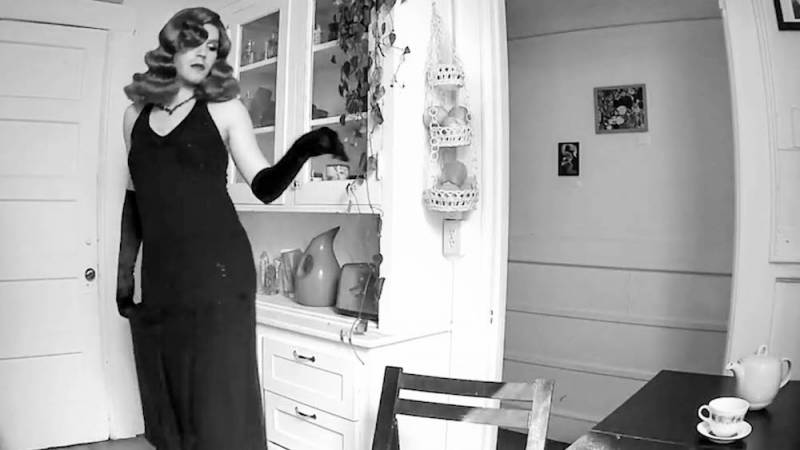
If that lack of resolution produces anxiety for you, what Utopia brings to the table is a buoyant exploration of possibility, frequently turning to the familiar for inspiration. In a time of heightened anxiety and socially distant isolation, how novel and welcome it feels to “sit” in a “cafe” with actors Michelle Talgarow and Chloe Fong. To eavesdrop on the burgeoning romance between Jasmine Milan Williams and Regina Morones, listen to a long list of impossible ice creams flavors delivered with jolly sincerity or bite with gusto at a cartoon croissant with an audible crunch. Or to hear the words of Joe Brainard recited, notable for infusing the everyday with elements of the sensual. The taste of the sugar left over on the wrappers of bubblegum, the click of Mahjong tiles, the sounds, smells and flavors that proliferate the ordinary extraordinary.
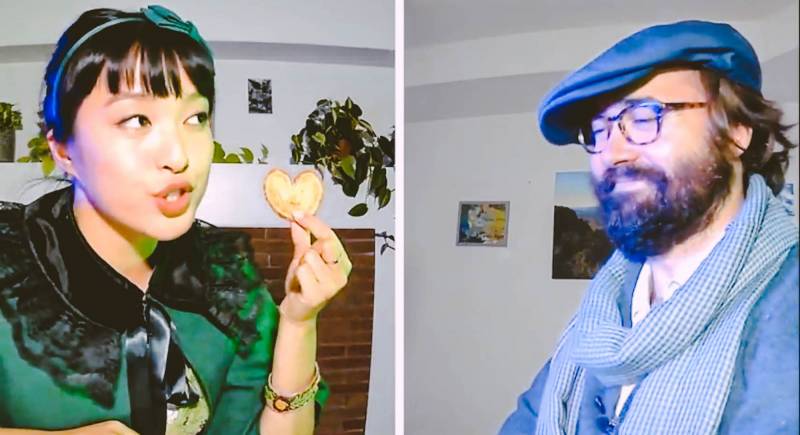
Above all, Utopia is a sensory experience, with a dizzying array of colorful costumes designed by Sarah LeFeber and exquisite props by Adeline Smith. Lighting designer Cassie Barnes imbues each scene with a signature color—a cabaret palette of deep lavender, luscious rose, gaslight green and primary blue. And cartoonish swoops and flourishes provided by James Ard’s sound design add dimension and a delightful goofiness to the mix. Interspersed throughout, the vibrant work of painters and sculptors from the Creativity Explored art studio for developmentally disabled adults brings irresistible pops of color and energy to this Utopia.
